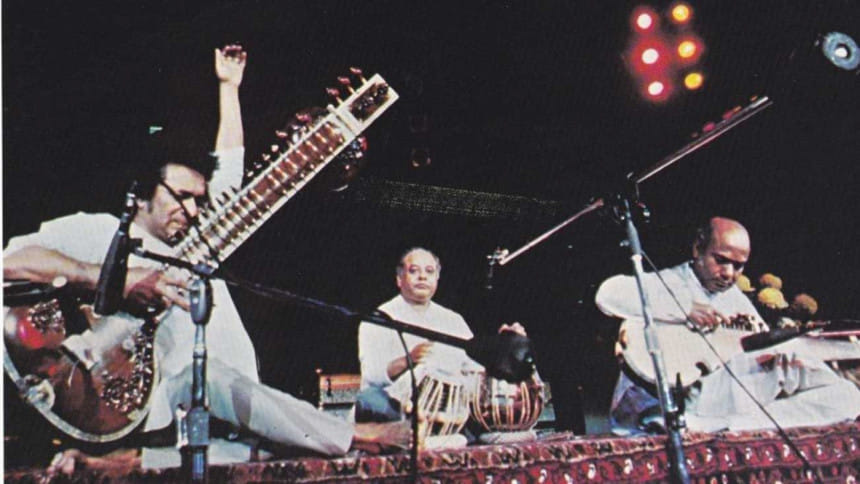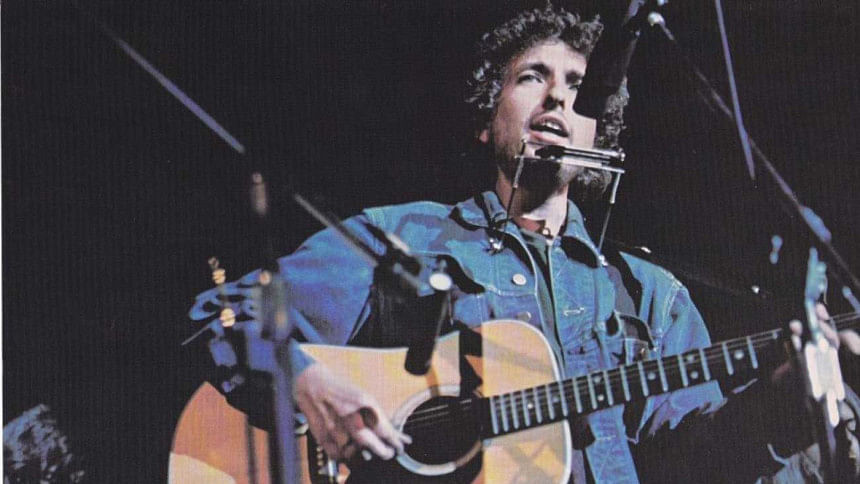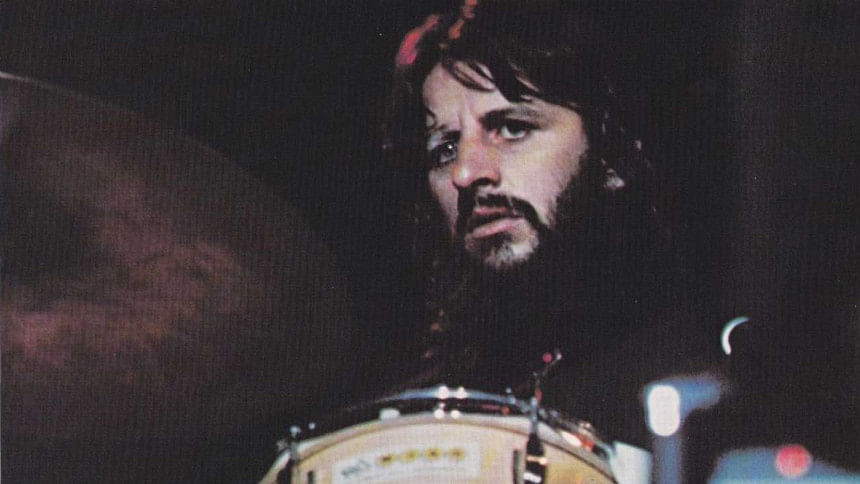CONCERT FOR BANGLADESH

Pandit Ravi Shankar's initial plan was to raise around $25,000. Somehow! He thought of acquiring the money, first through the sale of his album, Joi Bangla, and later by arranging a charity concert. The money thus generated would be utilised to alleviate the sufferings of the millions of children living under harsh circumstances at refugee camps in India.
In an interview in 1971, Pandit Ravi Shankar explained his state of mind over the affairs and how he approached Harrison for help. "I was in a very sad mood, having read all this news, and I said, "George, this is the situation, I know it doesn't concern you, I know you can't possibly identify." But while I talked to George he was very deeply moved ... and he said, "Yes, I think I'll be able to do something."

Harrison himself shared that very moment later on in an interview given in 1971. "The Concert For Bangladesh happened because of my relationship with Ravi ... I said, "If you want me to be involved, I think I'd better be really involved" he said.
That small idea grew with the passing weeks and once George Harrison took an active role, he instantly thought of a long list of probable performers.
And who would have thought? Ringo Starr, Bob Dylan, Eric Clapton, Billy Preston, Leon Russell and the band Badfinger - giants of the contemporary music scene. All under one roof! It was an unprecedented event, and for the 400,000 capacity crowd at the Madison Square Garden, a privilege to experience history in the making.
The money that was raised from the events saved the lives of millions. What was even more critical was the widespread public support it garnered to the cause for Bangladesh. Suddenly, everyone was talking about the genocide in East Pakistan and the millions fleeing to neighbouring India as refugees.

Initially only a single show, to be held in the afternoon of August 1, 1971 was planned. But encouraged from the overwhelming response from the sale of tickets, another performance was hosted in the same evening.
Putting together such a star-studded event was not an easy task by any means. It was Harrison's prowess as an organiser that saw the performance of the likes of Eric Clapton and even Bob Dylan, whose performance was raved on as one of the most glorious and soul soothing renditions ever in concert history.
At the concert – "My friend came to me with sadness in his eyes and told me that he wanted help before his country dies" – was Harrison's honest confession. That single plea from a friend gave the world a musical celebration, an extravaganza that shook the human psyche and brought out notions of solidarity and human brotherhood.
The concerts raised around 250,000 dollars for Bangladesh relief but the project was tarnished with financial difficulties, which is not unwarranted for a pioneering project that was the concert.
Gary Tillery, eminent biographer and historian said "The Concert for Bangladesh sealed Harrison's stature as something more than just a major celebrity ... He changed the perception of recording artists, making it clear they could be good world citizens too – willing to set aside their egos and pay checks in order to help people who were suffering."

Despite being a 'rock' event, the crowd behaved with much sobriety befitting the event. Allen Klein, Harrison's media manager later said, ""There was no rioting. Not one policeman was allowed in there ... Zero!"
The single "Bangla Desh" was released prior to the performance of August 1. Following the staging, a live album was released which was honoured with Album of the Year award at the 1972 Grammy Awards. An Apple Films' concert documentary opened in cinemas in the spring of 1972.
While reminiscing about the show, Phil Spector said, "It was magical." He believed, "That's the only way to describe it, because nobody had ever seen anything like that before, that amount of star power ... all in two hours onstage at one time."
It was good music, quality time and an unforgettable moment. But it was probably humanity that stole the show.

 For all latest news, follow The Daily Star's Google News channel.
For all latest news, follow The Daily Star's Google News channel. 



Comments